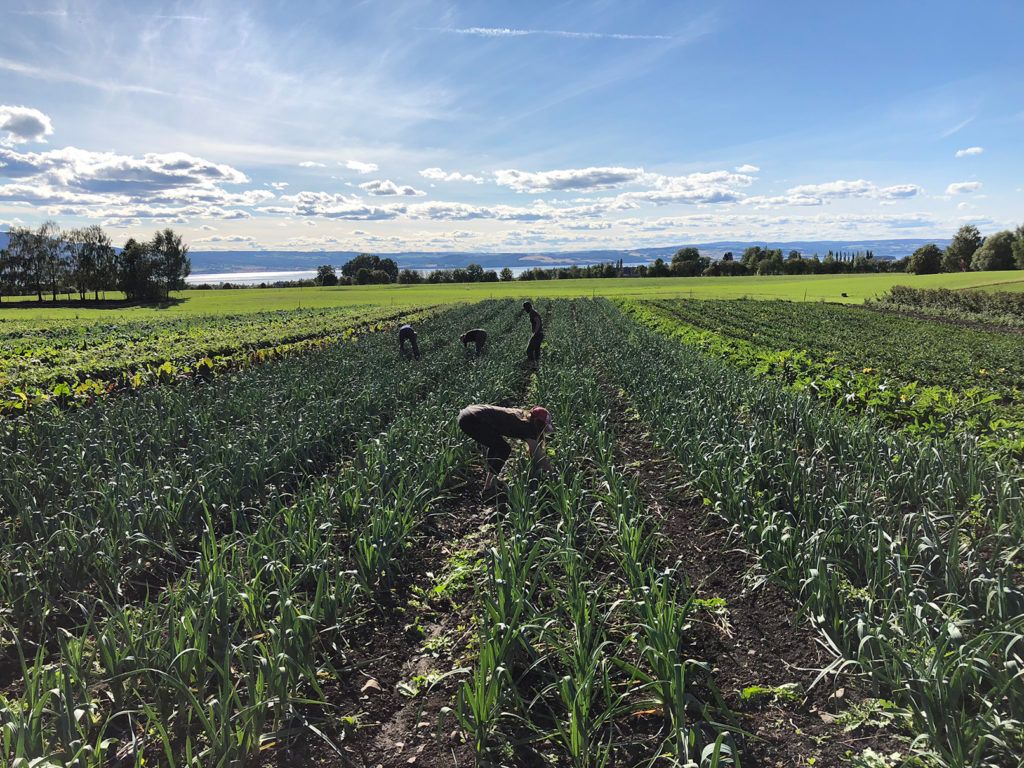In 2022, the world population reached eight billion, which is more than double the population fifty years ago. Simultaneously, global food production has also been increased to feed the growing number of mouths. Future professionals thus need a revised set of skills and approaches to address emerging challenges in agrifood systems. Some of the most debated topics related to this need are how tertiary-level education in agrifood systems can prepare future graduates to meet the demanding competencies and how to bridge the gap between theory and practice to uphold sustainable agriculture and food systems.
Action learning
The NextFood provided new insights into this debate with inputs from its case studies based on cases incorporating participatory action learning. Action learning is an approach where participants learn through action, experience and reflecting upon the results. In one of the twelve NextFood case studies, one examined how the students of the master’s course in Agroecology at the Norwegian University of Life Sciences in Ås, Norway, acquire the required competencies for agrifood systems through participatory action learning. The lecturers facilitated students of the programme to go beyond the classroom learning method and get involved in farming and food system projects. Thus, the students could directly interact with stakeholders in the field, such as farmers, farm workers, retailers etc., as a part of their course.
This way, the students could apply their theoretical knowledge to understand and analyse real-life scenarios and challenges in the field. In addition, they discussed their understandings, perceptions and visions related to the cases with the stakeholders. Moreover, the students’ field experience became a stimulant to enhance their knowledge, essential competencies and professionalism for sustainable agrifood systems. Most importantly, the master’s course highlighted the necessity of the competences — participation, observation, dialogue, visioning and reflection to create future graduates.
Why action learning?
Based on the outcomes of the NextFood case study one, action learning improves participants’ generic skills, such as collaboration, communication, critical thinking, problem-solving and their self-directed learning capacity. For example, interactions between participants and stakeholders strengthen multi-sector collaborations and enable embracing a holistic view of the situation and the system. At the same time, the participants’ involvement in challenges and problem-solving processes in the field allows them to learn from real-life scenarios to address social challenges. Furthermore, the action learning method is instrumental in reducing the gap between academia and society. This method enables students to bring learning outcomes from school to the field and back to school and interconnect those outcomes to generate science-based practices and practice-oriented research. Thus, action learning should be considered as a constructive approach to create future professionals to meet the demands and overcome the challenges of sustainable agrifood systems.
For more fruitful outcomes
The objectives, methods and outcomes of encompassing participatory action learning within the NextFood case study were not merely applicable to this particular case study. Instead, they can be adapted to various geographical and cultural settings. However, the implementation of and familiarisation with the action learning approach in tertiary education institutes such as universities are not the same everywhere in the world. How well it is received, interpreted and implemented by different academic cultures depends on prevailing academic practices, organisational hierarchies, social norms and many other factors. Moreover, this approach associates more than just the academic sector; it also incorporates diverse stakeholders. Therefore, it is not a simple practice to which one can quickly adapt. Change is often initially resisted by the relevant stakeholders. Thus, they need time to familiarise themselves with the action learning approach. Simultaneously, the implementation strategies and execution of this approach need to be shaped and customised according to different cultures, organisational structures and contexts to bring out more fruitful outcomes aimed at sustainable agrifood systems.
